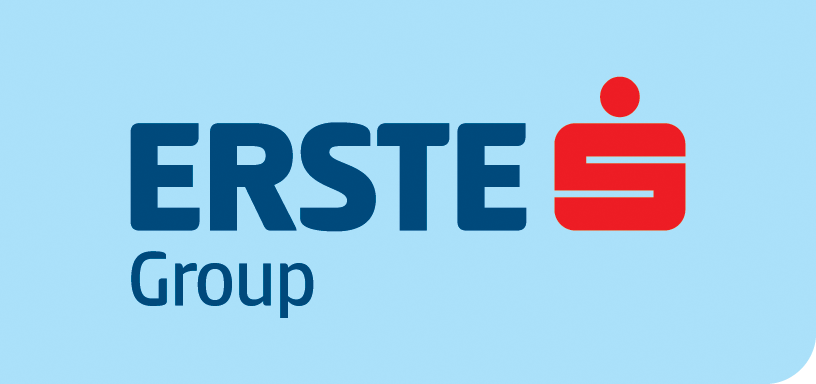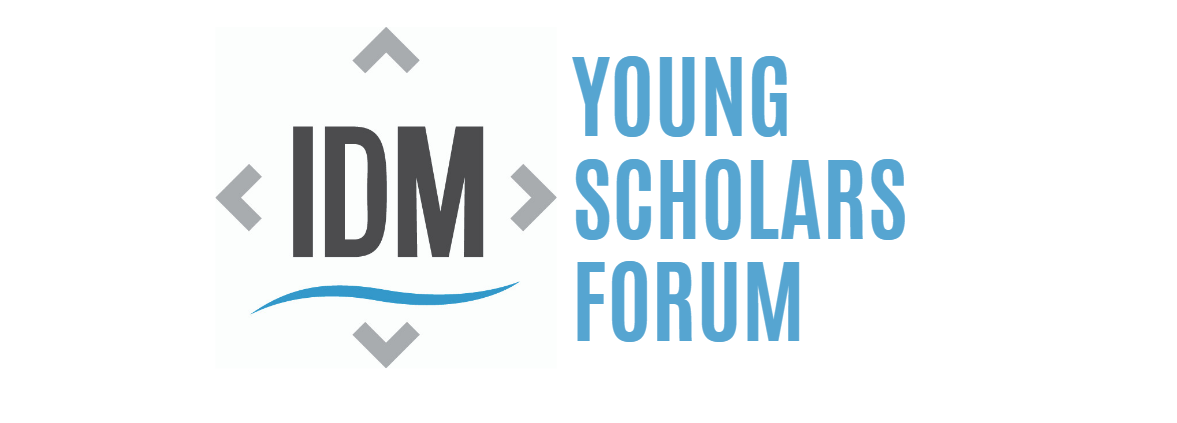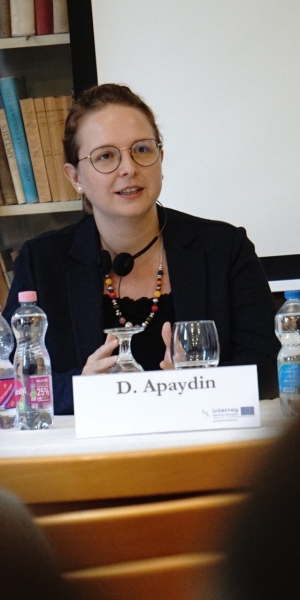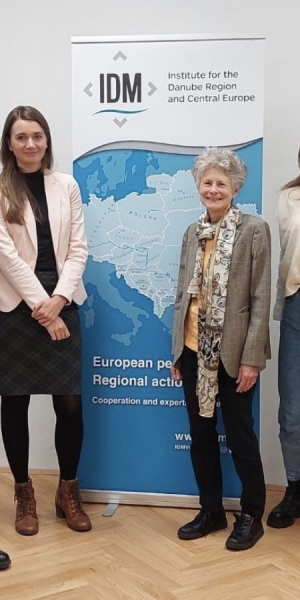Call for applications: 8th Young Scholars Forum on Central and South-Eastern Europe 2022
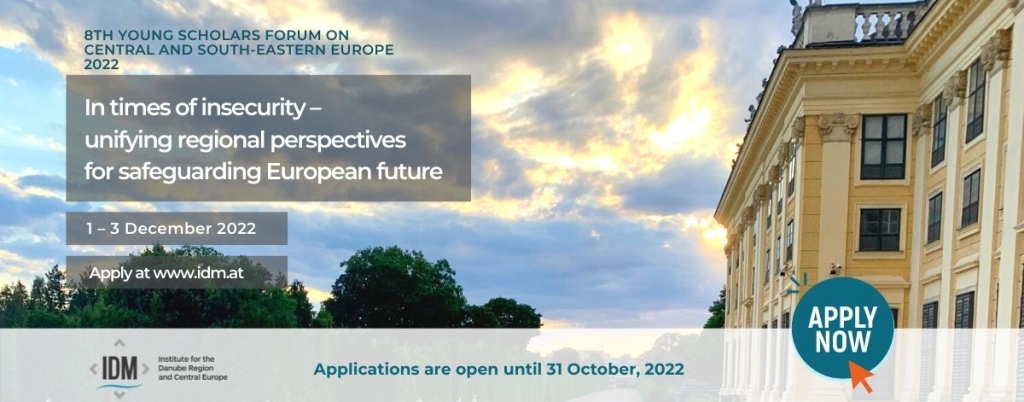
8th Young Scholars Forum on Central and South-Eastern Europe 2022
“In times of insecurity – unifying regional perspectives for safeguarding European future”
1 – 3 December 2022
During the last few years, regional security has come under extreme threat, causing the issue to dominate public debate once again after a long period of peace in Europe. In 2022, the attack on an independent state in Europe by a more powerful neighbor reminded the people in Central, Eastern and South-Eastern Europe that their territorial, democratic, cultural and informational security cannot be taken for granted, but rather constitute fragile privileges that need to be protected and cultivated. The questions of what geographic order, distribution of democratic rights, culture and facts should be accepted and nurtured, but they are instead highly debated and uncertain amongst the different countries and societies of the region. In fact, it is hard to find an issue on which there are more diverging perceptions and opinions across Central, Eastern and South-Eastern Europe. As a universal term, security leaves room for different interpretations, shapes and also comes with different relevance for people’s daily life.
In light of the recently increased pressure and threat to European security, the multitude of perceptions of security in the different regions of Europe have to be brought together in order to create a common understanding of what is at stake and how to overcome external and internal threats. The people in Europe have to unify their regional perspectives to secure their freedom, principles of democracy, cultural autonomy and access to truthful information in the future.
The 8th Young Scholars Forum focuses on the most relevant parts of security in Europe. Divided into four thematic panels, this year’s gathering of young scholars from across Central, Eastern and South-Eastern Europe will discuss and debate their positions and research on how European societies can come together to defend and progressively foster European security by means of merging their regional cultures, potentials and abilities. General topics of the 8th Young Scholars Forum 2022 are:
- Securing geopolitical Europe
- Securing cultural diversity
- Securing democratic solidarity
- Securing resilient infosphere
Who we are looking for
We are seeking 20 young scholars working on Central and South–Eastern Europe in the fields of peace research and security policy, cultural studies, political sciences, economy, geography, sociology, media studies, and history to contribute with their research to the analysis of the aforementioned issues and to find a common ground for understanding security across the region.
Aims of the Forum
- Promoting and encouraging young scholars to engage with Central and South East Europe
- Presentation of research by young scholars to a wider public
- Exchange among young and more advanced researchers on topics, methods, sources and results
- Networking
- Furthering mobility within the region
- Publication of research contributions in the IDM scientific journal „Der Donauraum“
Thematic programme of the Forum
Panel I
Securing geopolitical Europe
The lack of geopolitical belonging of non-EU and non-NATO states in Eastern and South–Eastern Europe fundamentally affects events at both the regional and European level. Not only are countries which are excluded from international alliances highly vulnerable to external influences; they represent a weakness of common European security and pose a threat to the achievement of the unified, reliable European security architecture. The escalation of the war in Ukraine was perceived as the necessary impetus for these countries to escape geopolitical limbo. However, with no advancing integration of these into European security structures, the creation of a strong Europe as a geopolitical player remains out of sight.
Panel II
Securing cultural diversity
European integration was initiated via the economic integration of the European Member States. By striking down trade barriers, such as tariffs, non-tariff measures and by harmonising standards of productions and products, European societies and cultures came together and integrated into one another. With the 2004 eastern enlargement, a new large share of very different cultures and values joined the EU. Although earlier enlargements of the Union did not cause social outcries, the incorporation of the multitude of eastern cultures led to fears among the old members’ societies of the new members’ populations in terms of security of their cultural heritage. In particular, the EU’s aim of economic approximation achieved via harmonisation measures is perceived by many as a threat to Europe’s regional and local cultural identities.
Panel III
Securing democratic solidarity
In a rapidly changing world where large authoritarian regimes are on the rise, there is little room left to address the undemocratic character of some governments in Central and South–Eastern Europe. However, nonadherence to the rule of law, subversion of democratic processes and abuse of state institutions is often a hallmark of governments with significant popular support. Particularly in Europe, the threat to the democratic order in some states endangers the solidarity feeling of belonging to a union of like-minded people. It is thus crucial for European states and societies to focus on the question of why autocratic leaders receive public support and how societies in Europe can combine efforts to strengthen democratic security and show their solidarity to the people whose fundamental rights are progressively being stripped away.
Panel IV
Securing resilient infosphere
Especially during military conflicts, the propaganda machinery runs at full speed, and the Russian disinformation campaign regarding the aggressive attack on Ukraine is no exception. But also, the spread of misinformation and censuring of politically unpopular statements in the media are occurring more frequently. Propaganda and fake news find their followers in all states of the region and permeate all spaces – the printed press, online spaces and social media alike. The digital world made it possible to create virtual echo chambers, which as a result not only feed the disinformation flows, but also in many cases influence the sociopolitical and security situation in the country. European societies, with their diversity of cultures, perceptions, interests and threats, should be able to rely on transparent, accurate and timely information in order to foster mutual understanding and secure peace for the future.
What you need to apply
- a full academic CV
- an abstract (max. 500 words) of the research topic that shall be presented and discussed at the forum
Overall costs for travel expenses (up to €200,-) as well as meal, board & accommodation will be reimbursed by the IDM.
Applications for participation should be submitted in English via the application form by 31 October 2022. Early bird applications are highly welcomed.
To the application form: https://forms.gle/j5EKt33SXTamSmZY7
Language of the Forum: English
Sponsors:
![]()
![]()
